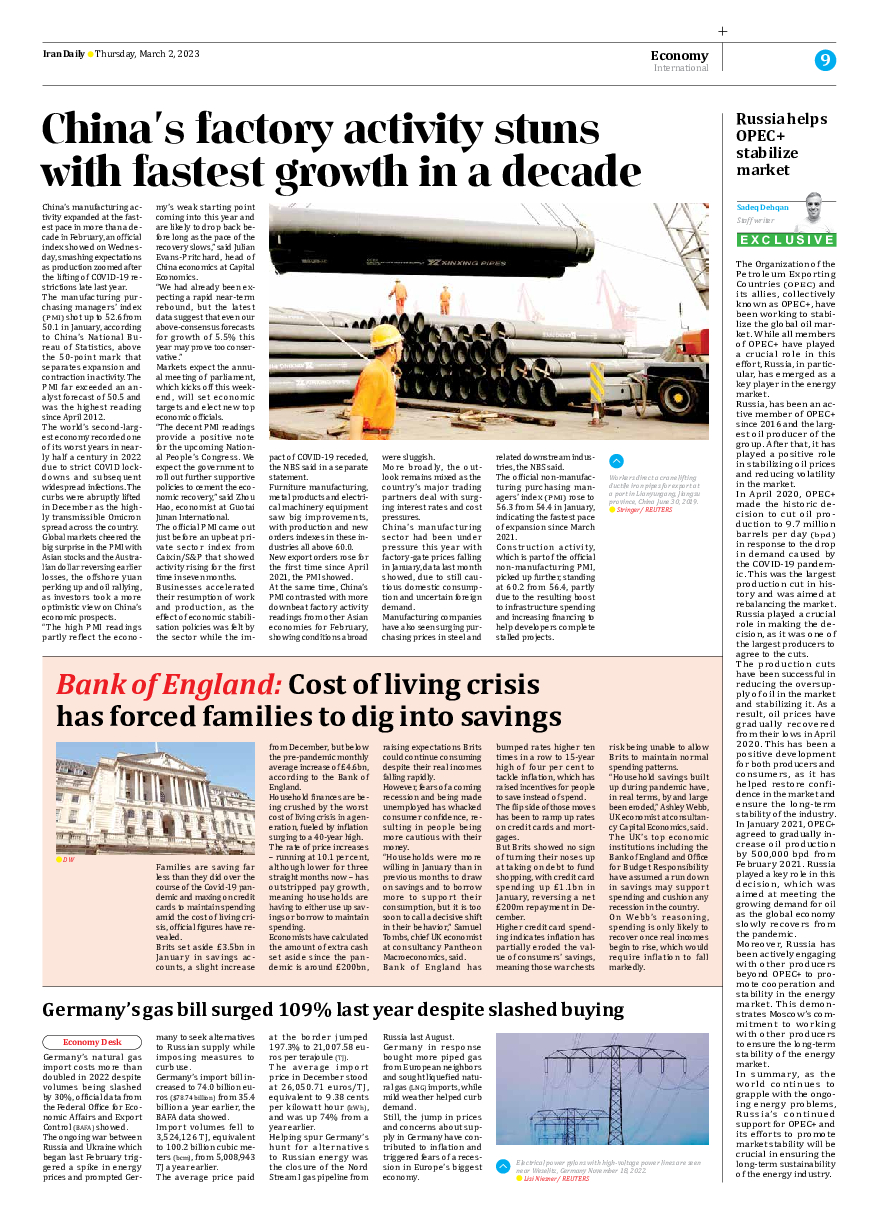
EXCLUSIVE
Russia helps OPEC+ stabilize market
Sadeq Dehqan
Staff writer
The Organization of the Petroleum Exporting Countries (OPEC) and its allies, collectively known as OPEC+, have been working to stabilize the global oil market. While all members of OPEC+ have played a crucial role in this effort, Russia, in particular, has emerged as a key player in the energy market.
Russia, has been an active member of OPEC+ since 2016 and the largest oil producer of the group. After that, it has played a positive role in stabilizing oil prices and reducing volatility in the market.
In April 2020, OPEC+ made the historic decision to cut oil production to 9.7 million barrels per day (bpd) in response to the drop in demand caused by the COVID-19 pandemic. This was the largest production cut in history and was aimed at rebalancing the market. Russia played a crucial role in making the decision, as it was one of the largest producers to agree to the cuts.
The production cuts have been successful in reducing the oversupply of oil in the market and stabilizing it. As a result, oil prices have gradually recovered from their lows in April 2020. This has been a positive development for both producers and consumers, as it has helped restore confidence in the market and ensure the long-term stability of the industry.
In January 2021, OPEC+ agreed to gradually increase oil production by 500,000 bpd from February 2021. Russia played a key role in this decision, which was aimed at meeting the growing demand for oil as the global economy slowly recovers from the pandemic.
Moreover, Russia has been actively engaging with other producers beyond OPEC+ to promote cooperation and stability in the energy market. This demonstrates Moscow’s commitment to working with other producers to ensure the long-term stability of the energy market.
In summary, as the world continues to grapple with the ongoing energy problems, Russia’s continued support for OPEC+ and its efforts to promote market stability will be crucial in ensuring the long-term sustainability of the energy industry.







